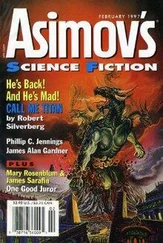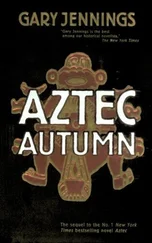Gary Jennings - Aztec
Здесь есть возможность читать онлайн «Gary Jennings - Aztec» весь текст электронной книги совершенно бесплатно (целиком полную версию без сокращений). В некоторых случаях можно слушать аудио, скачать через торрент в формате fb2 и присутствует краткое содержание. Жанр: Старинная литература, на английском языке. Описание произведения, (предисловие) а так же отзывы посетителей доступны на портале библиотеки ЛибКат.
- Название:Aztec
- Автор:
- Жанр:
- Год:неизвестен
- ISBN:нет данных
- Рейтинг книги:4 / 5. Голосов: 1
-
Избранное:Добавить в избранное
- Отзывы:
-
Ваша оценка:
- 80
- 1
- 2
- 3
- 4
- 5
Aztec: краткое содержание, описание и аннотация
Предлагаем к чтению аннотацию, описание, краткое содержание или предисловие (зависит от того, что написал сам автор книги «Aztec»). Если вы не нашли необходимую информацию о книге — напишите в комментариях, мы постараемся отыскать её.
"Anyone who reads, anyone who still lusts for adventure or that book you can't put down, will glory in Aztec."--Los Angeles Times
Aztec
Aztec
Aztec — читать онлайн бесплатно полную книгу (весь текст) целиком
Ниже представлен текст книги, разбитый по страницам. Система сохранения места последней прочитанной страницы, позволяет с удобством читать онлайн бесплатно книгу «Aztec», без необходимости каждый раз заново искать на чём Вы остановились. Поставьте закладку, и сможете в любой момент перейти на страницу, на которой закончили чтение.
Интервал:
Закладка:
Well, I had no such fears. Or rather, I was already punishable for worse offenses, so I felt not much concern for trivial ones. I went home to our wretched little hut, and I made a drawing, and I knelt beside Béu's pallet to hold it close to her eyes.
"Waiting Moon," I said, "can you see this clearly enough to copy it?" She peered intently as I pointed to the various elements. "See, it is an eagle, with his wings poised for flight, and he perches on a nopali cactus, and in his beak he holds the war symbol of intertwined ribbons—"
"Yes," she said. "Yes. I can better make out the details, now that you have explained them. But copy it, Záa? What do you mean?"
"If I buy the materials, could you make a copy of this by embroidering with colored threads upon a small square of cloth? It need not be as exquisite as the pictures you used to make. Just brown for the eagle, green for the nopali, perhaps red and yellow for the ribbons."
"I believe I could. But why?"
"If you can make enough such copies, I can sell them in the market. To the white men and women. They seem to fancy such curiosities, and they pay in coin for them."
She said, "I will make one, while you watch me, so you can correct me where I go wrong. When I have one done right, and can feel it with my fingertips, I can use it for a pattern to do any number of others."
And she did, and very nicely too, and I applied for a place in the market, and was allotted a small space, and there I spread a groundcloth, and on it I arrayed the replicas of the old emblem of the Mexíca. No one in authority came to molest me, or to make me take the things away; instead, many people came and bought. Most were Spaniards, but even some of my own race offered me this or that in barter, because they had thought they would never again see that reminder of who and what we had been.
From the start, many Spaniards complained of the design: "That is not a very lifelike snake the eagle is eating." I tried to tell them that it was not intended to be a snake, nor was the eagle eating it. But they seemed unable to comprehend that it was a word picture, the intertwined ribbons that signified fire and smoke, hence also signified war. And warfare, I explained, had constituted a great part of Mexíca history, whereas no reptile ever had. They said only, "It would look better with a snake."
If that was what they wanted, that was what they would have. I made a revised drawing, and helped Waiting Moon make from it a new piece of embroidery, which she used thereafter as her pattern. When inevitably other tradesmen at the market copied the emblem, they copied it complete with the snake. None of the imitations were as well made as Béu's, so my business did not suffer much. Rather, I was amused by the slavishness of the copies, amused that I had instigated a whole new industry, amused that that should be my concluding contribution to The One World. I had been many things in my life, even for a time the Lord Mixtli, a man of stature and wealth and respectability. I would have laughed if anyone had told me, "You will end your roads and your days as a common tradesman peddling to haughty outlanders little cloth copies of the Mexíca emblem—and a debased travesty of the emblem, at that." I would have laughed, so I did laugh, as I sat there day after day in the marketplace, and those who stopped to buy from me thought me a jolly old man.
As things turned out, I did not quite end there, because the time came when Béu's eyesight failed completely, and her fingers also went, and she could no longer do the embroidery, so I had to close my little venture into trade. We have lived since then on the savings of coins we put by, though Waiting Moon has often and fretfully expressed the wish that death might release her from her black prison of boredom and immobility and misery. After a while of inactivity, of doing no more than existing, I might have wished that release for myself as well. But it was then that Your Excellency's friars found me and brought me here, and you asked me to talk of times past, and that has been diversion enough to sustain my interest in living. While my employment here has meant an even more dreary and solitary imprisonment for Béu, she has endured it just so I would have someone to go home to, on the nights I have gone home to that shack. When finally I go there to stay, perhaps I shall arrange that it be no overlong stay for her and me. We have no more work to do, or any other excuse for remaining in the world of the living. And I might mention that the last contribution we did make to The One World does not now amuse me. Go to the Tlaltelólco market this day and you will see the Mexíca emblem still for sale, still complete with serpent. What is worse—why I am not amused—you will also hear there the professional storytellers, now coiling that invented and excrescent snake into our most venerable legends:
"Hear me and know. When our people first came here to this lake region, when we were still the Aztéca, our great god Huitzilopóchtli bade our priests look for a place where there stood a nopali, and upon it an eagle perched, eating a snake...."
Well, Your Excellency, so much for history. I cannot change the pitiful little falsities of it, any more than I can change the far more deplorable realities of it. But the history I have told is the history through which I lived, and in which I had some part, and I have told it truthfully. I kiss the earth to that, which is to say: I swear to it.
* * *
Now, it may be that I have here and there in my narrative left a gap that Your Excellency would like bridged, or there may be questions Your Excellency would wish to put to me, or further details Your Excellency would desire on one subject or another. But I beg that they be postponed for a time, and that I be allowed a respite from this employment. I ask Your Excellency's permission now to take my leave of you and the reverend scribes and this room in what was once The House of Song. It is not because I am weary of speaking, or because I have said all that might be told, or because I suspect you may be weary of hearing me speak. I ask to take my leave because last night, when I went home to my hut and sat down beside my wife's pallet, something astounding occurred. Waiting Moon told me that she loved me! She said that she loved me and that she always had and that she still does. Since Béu never in her life said any such thing before, I think she may be approaching the end of her long dying, and that I ought to be with her when it comes. Forlorn things though we are, she and I, we are all we have—Last night, Béu said she had loved me ever since our first meeting, long ago, in Tecuantépec, in the days of our greenest youth. But she lost me the first time and she lost me forever, she said, when I decided to go seeking the purple dye, when she and her sister Zyanya did the choosing of the twigs to see which of the girls would accompany me. She had lost me then, she said, but she had never ceased to love me, and never encountered another man she could love. When she made that astonishing revelation last night, an unworthy thought went through my mind. I thought: if it had been you, Béu, who went with me, who married me soon after, then it would be Zyanya whom now I would still have with me. But that thought was chased away by another: would I have wanted Zyanya to suffer as you have suffered, Béu? And I pitied the poor wreckage lying there, saying she loved me. She sounded so sad that I endeavored to make light of it. I remarked that she had chosen some odd ways in which to manifest her love, and I told how I had seen her dabbling in the magic art, making a mud image of me, as witch women do when they would work harm upon a man. Béu said, and she sounded sadder yet, that she had made it to do me no hurt; that she had waited long and in vain for us to share a bed; that she had made the image that she might sleep with it and possibly enchant me into her embrace and into love of her. I sat silent beside her pallet, then, and I thought over many things past, and I realized how undiscerning and impervious I have been during all the years Béu and I have known each other; how I have been more unseeing and crippled than Béu is at this moment in her utter blindness. It is not a woman's place to announce that she loves a man, and Béu had respected that traditional inhibition; she had never said it, she had disguised her feelings with a flippancy that I had obstinately and always taken for scorn or mockery. She had let slip her ladylike restraint only a few times—I remembered her once saying wistfully, "I used to wonder why I was named Waiting Moon"—and I had refused ever to recognize those moments, when all I need have done was hold out my arms—True, I loved Zyanya, I have gone on loving her, and I always will. But that would not have been diminished by my later loving Béu too. Ayya, the years I have thrown away! And it was I who deprived myself; I can blame no one else. What is more hurtful to my heart is the ungracious way in which I deprived Waiting Moon, who waited so long, until now it is too late to salvage even a last moment of all those misused years. I would make them up to her if I could, but I cannot. I would have taken her to me last night, and lain with her in the act of love, and perhaps I could have done it, but what remains of Béu could not. So I did the only thing possible, which was to speak, and I spoke it honestly, saying, "Béu, my dear wife, I love you too." She could not reply, for the tears came and choked what little voice she has left, but she put out her hand to mine. I squeezed it tenderly, and I sat there holding it, and I would have entwined our fingers, but I could not even do that, since she has no fingers.
Читать дальшеИнтервал:
Закладка:
Похожие книги на «Aztec»
Представляем Вашему вниманию похожие книги на «Aztec» списком для выбора. Мы отобрали схожую по названию и смыслу литературу в надежде предоставить читателям больше вариантов отыскать новые, интересные, ещё непрочитанные произведения.
Обсуждение, отзывы о книге «Aztec» и просто собственные мнения читателей. Оставьте ваши комментарии, напишите, что Вы думаете о произведении, его смысле или главных героях. Укажите что конкретно понравилось, а что нет, и почему Вы так считаете.











